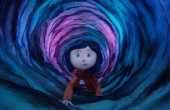Seth Childers
As a passionate moviegoer and gamer, I love writing and critiquing forms of entertainment and art, and I always enjoy a good debate or discussion on the themes of a story.
Contributor I
- Plebian Penman
- Lurker
- Sharp-Eyed Citizen
- ?
- Articles
3 - Featured
3 - Comments
15
- Ext. Comments
8 - Processed
2 - Revisions
2
- Topics
5 - Topics Taken
0 - Notes
14
- Topics Proc.
6 - Topics Rev.
0
- Points
831 - Rank
181 - Score
371
Latest Articles
Latest Topics
Remastered Games and HD Collections in the Video Game IndustryThe release of Uncharted: The Nathan Drake Collection marks yet another addition to the long line-up of video games that are undergoing the remaster/HD collection trend that started all the way back in 2009 with the God of War Collection. Since then, more developers have pushed towards remastering games from the last generation with current generation technology. On one hand, these old games can be experienced with improved resolution and performance, and can also be played by gamers who may have missed out on them the first time. On the other hand, the frequency of these remasters have become a source of criticism, either for their lack of value compared to HD collections with only one remastered game sold at a high price, or for only offering mild upgrades that do not offer much of a benefit to those who have already played the original game. With so many franchises getting the remaster treatment, I think it would be a good idea to detail the history of these remasters – the good and the bad – and explore what makes a good remaster.
|
Disney at the Box-Office: Do Big Budgets Matter?Recent summer box-office results have labeled Tomorrowland as 2015's biggest box-office bomb, with an estimated loss of around $120-150 million. While Disney is notable for spawning a huge money-making franchise with Pirates of the Caribbean, the studio has also produced its share of expensive flops, including John Carter and The Lone Ranger. Despite these bombs, the studio shows no signs of learning from past mistakes and seems to be set on spending more money on big productions to re-create the success of Pirates of the Caribbean. This begs the questions of why these films continue to flop for Disney and whether spending more money on projects makes any difference with creating critical or financial success.
|
Published | animation Write this topic10 Mature Moments in a Pixar FilmMovies aimed at younger audiences almost always get a bad reputation for being just for kids, but Pixar has proven that just because it is made for kids does not mean it has to be devoid of creativity or emotional depth, even if sometimes they can be more mature than they expected. For this list, I want to explore some of the most emotional, dark, touching, and mature moments that Pixar has presented in its 15-film catalog that were more complex than what is normally seen in kids' films, and detail on why these moments are significant to both the movies themselves and their target audience.
|
film Write this topicFantastic 4: Creative Freedom vs. Studio ExecutivesOn August 7th, 2015, 20th Century Fox's Fantastic 4 was released to scathing critical reviews and disappointing box-office returns. The bad reception seems to be universal, even right down to the film's own director, Josh Trank, who tweeted before the film's release that "a year ago I had a fantastic version of this" that audiences will never be able to see. 20th Century Fox has had a reputation for interfering with some projects, and this one was a notable example, but the director has also been criticized for erratic behavior that also caused problems during filming. Was Fantastic Four the product of bad studio decisions which rushed the film into the state it is, or an inexperienced director who did not know how to handle a large-scale production like this? For this article, I think it would be a great idea to explore the reasons why Fantastic Four failed critically and financially, who is to blame for this (the studio or the director), and how much creative control should be given to directors and studio executives in the future.
|
film Write this topicHow Much Should Movie Trailers Show?Movie trailers are often criticized by audiences for giving away too much of the movie, potentially revealing major events or spoilers before the film's release, and nowhere is this more exemplary than the backlash received by Terminator Genisys's second trailer. However, around that same time, a teaser for Star Wars: The Force Awakens premiered and received wide critical acclaim for building on excitement without revealing too much. These two trailers beg an important question: how much should Hollywood trailers show to audiences?
|
Latest Comments
| 10 Mature Moments in a Pixar Film | |
I think you hit every major reason why I love superheroes in movies. I think superhero films work not only as a great form of entertainment, but also as personal stories that inspire its viewers to aspire to good values – to be selfless and help others in need. I especially like how more recent superhero films highlight the flaws and vulnerability underneath their powers to show that they are just like any other person struggling through hard times. I find their stories entertaining and inspiring, and it is why I still continue to go see them today. Great article! | Why We Love Superhero Films: The Humanity Behind the Mask |
With so many games in the industry leaning towards linear shooters, I always find it refreshing that Nintendo continues to keep collectathons alive and well. Super Mario 64 was a favorite of mine growing up, and I still have fond memories of it, and their more recent efforts like the Super Mario Galaxy 1 and 2 or Super Mario 3D Land/World just feel more rewarding than any achievement on Xbox or PlayStation. Great article! | The Nintendo Collectathon: A Genre of the Past |
I enjoy Frozen (especially the “Let It Go” sequence), but in my opinion, it does not come close to topping The Lion King. It is easily one of Disney’s best movies. I like how you bring up the similarities between the two but also the differences they share in how original they are and how they tell their own stories. I like Frozen a lot for bringing back the Disney magic that was seen during the Renaissance (the only recent film to do that was Tangled, and even then the songs were one of the weakest aspects of that movie), but taken on its own terms, it just does not stand as strong on its own as The Lion King did. | The Lion King: The Seven Standards of Disney |
That is unfortunately an issue with most 3D movies nowadays. With the exception of Pacific Rim (which was already filled to the brim with special effects and made the 3D pop out much more as a result), the only ones on this list were filmed and designed with 3D in mind. Most 3D movies are just quick 2D-to-3D conversions that range from bad to decent, but otherwise do not impress because they were not designed with it in mind. There are some great 3D movies if you know where to look, but unfortunately there are more mediocre ones than good. | Top 10 Implementations of 3D in Film: A New Dimension in Filmmaking |
Unfortunately, I think the situations will still be similar to how it is now. While some filmmakers are making the extra effort to shoot and design their movie in 3D, it is easier and cheaper to just film in 2D and convert it to 3D afterwards. 3D movies are getting more creative, but it is mostly from directors who want to take advantage of 3D for storytelling; most Hollywood filmmakers tend to shoot in 2D. Unless shooting in 3D becomes easier, it is likely that most filmmakers will just opt to do a 3D conversion. | Top 10 Implementations of 3D in Film: A New Dimension in Filmmaking |
While there are parts of this movie I enjoy, Godzilla to me was the biggest disappointment of 2014 for me. The marketing made this movie look incredible, and the actual movie did not live up to the hype. It is at least leagues ahead of the god-awful Roland Emmerich Godzilla film, but even with its incredible effects, it does not hold up against either Jaws or the original Godzilla film. | Godzilla, Spielberg and Cinematic Foreplay |
Very interesting article. Personally I am not as fond of the cliches in the movie (I would have preferred it if Cameron infused more originality in the story alongside more familiar plot elements), but I think your writing presents some interesting ideas about how Cameron uses those cliches to create a strong political and environmental message. In ways that possibly makes this movie timeless, which I never really considered before. | Avatar's Shock and Awe: Technology, Race, and Space |



I left out Dreamworks for two reasons. The first was because I wanted to focus solely on Pixar’s movies, which is why you do not see anything from other studios like Studio Ghibli or Dreamworks. The second is because while Dreamworks does have its share of great mature moments, I personally believe that Pixar is more consistent at delivering these kinds of moments.
That is not to say I do not like Dreamworks. While I do not think everything is memorable (Shark Tale and Turbo for example), they have recently made some really great films, such as Kung Fu Panda and Rise of the Guardians. The How to Train Your Dragon films in my opinion are the best thing they have done since Shrek.
Personally, I prefer most of Pixar’s films to Dreamworks, but I do agree that Dreamworks has some great stuff to offer. I only left Dreamworks out of the article so I can focus on Pixar’s work. Maybe one day I might cover some of Dreamworks’ movies in another article.